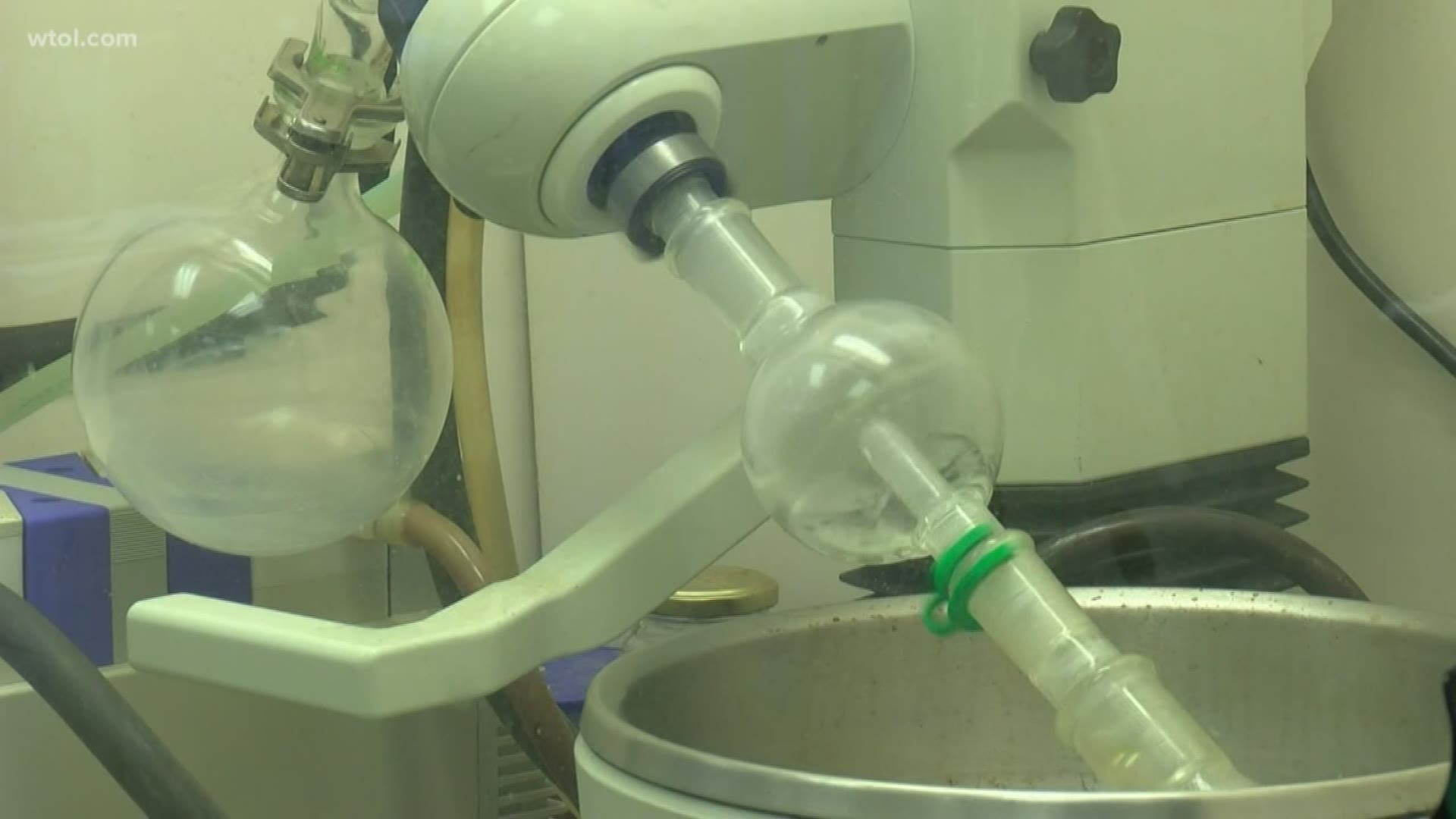FINDLAY, Ohio — What did YOU accomplish while attending college?
Well, a group of students at the University of Findlay can say they developed a chemical compound that could help fight brain cancer.
One of the many projects that University of Findlay College of Pharmacy students have been working on is a chemical compound to fight glioblastomas, an aggressive and resilient brain cancer.
It is such a tough disease to fight with medicine because it is difficult to get a potent chemical through the blood brain barrier, and still be able to kill cancer cells.
"Finding those compounds, we can not only get to the brain or get to the brain cancer, but also spare the normal cells, the normal brain cells. This is very, very important for us," said Dr. Rahul Khupse, medicinal chemistry professor at UF.
But recently, students found a string of chemical compounds that were testing well in killing the cancer cells.
And the compound RK-15 seems to be the best of the bunch.
Jacob Reyes, a fifth-year pharmacy student said RK-15 is showing to be 100 times more selective toward going after cancer cells while ignoring healthy brain tissue.
It's a breakthrough that could very well lead to a future treatment for this terrible disease that has only a 10% five-year survival rate.
And for students like Reyes, it's not only educational work to help get a future job, but meaningful work that could actually save lives, all done while in college.
"It's such a great opportunity. And I think one of the great things about Findlay is that it's one of those small schools where you can kind of get a more one-on-one interaction with your professors, and have an easier time getting the opportunity to get in the lab and make drug compounds like this that may someday make a difference," Reyes said.
The next step in this process is to use the compound in animal studies, which then could potentially be moved forward into human cancer patient studies.

